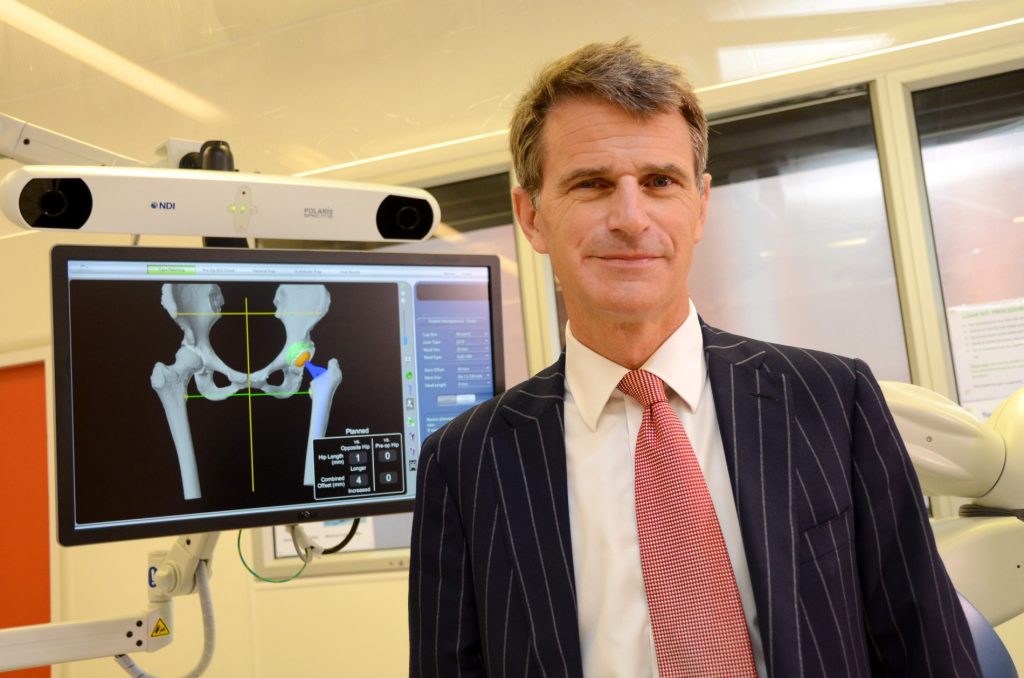Nuffield Health Bournemouth Hospital and Bournemouth University has partnered to head up the world’s first research programme dedicated to measuring the success rates of hip replacements, performed by pioneering robotic-assisted arm surgery.
Nuffield Health Bournemouth Hospital is one of the first hospitals in the UK, and is only one of a few countries in Europe, to invest in robotic-assisted technology. The Mako robotic-arm technology will provide hip replacements to Nuffield Health Bournemouth Hospital’s patients from October 2017, led by leading orthopaedic consultant Professor Robert Middleton, who is the head of the Orthopaedic Research Institute at Bournemouth University (ORI BU). This is the first time worldwide that an in-depth analysis of the physical and economic benefits of using robotic-assisted technology in hip replacements will be undertaken. This partnership is the result of a £200k grant awarded to Bournemouth University by the world’s leading medical technology company, Stryker.
Professor Middleton and Bournemouth University were chosen to receive the grant over applicants worldwide; one reason for this is because of the collaboration between the Orthopaedic Research Institute at Bournemouth University and the Nuffield Health Bournemouth Hospital. ORI BU has invested in the latest research technologies such as the Grail Gait Lab.
Professor Rob Middleton, said: “I was first trained in robotic-assisted surgery 20 years ago. The Mako technology is now at a level where patients are seeing a true benefit of receiving robotic-assisted surgery. As a Professor and an orthopaedic consultant, not only did I want to perform hip replacements using robotic technology to the highest standard, but I wanted to prove the benefits of using this technology over current standard practices, so all can benefit in the future”
In partnership with Nuffield Health, Professor Middleton will see patients before operating and then up to one year after at Bournemouth University’s ORI BU Grail Gait Lab. This facility has state-of-the-art equipment available including a 180-degree screen where medical professionals can take a deeper look at a patient’s gait or walk, as they swerve, jump and kick animated objects that will appear on screen.
Professor Middleton added: “Patients in the UK and Bournemouth will see a multitude of benefits from receiving robotic-assisted arm surgery including a quicker, less painful recovery and a longer lasting implant. A hip replacement is the most common surgery conducted in the UK and by improving this procedure patients will have the opportunity to get back on their feet and back to work quicker, as well as competitive sport.”
Professor John Fletcher Pro Vice-Chancellor, Research and Innovation Bournemouth University,
commented: “This partnership will bring real benefits, not just to Dorset and the UK, but globally, as we work together to drive forward innovation and improvements in medical science. This project is just one of many good examples of how we are investing in some key areas and it underlines the university’s commitment to the combination of research, education and professional practice, something we call ‘Fusion’, and how this research can make a real difference to our lives.”
